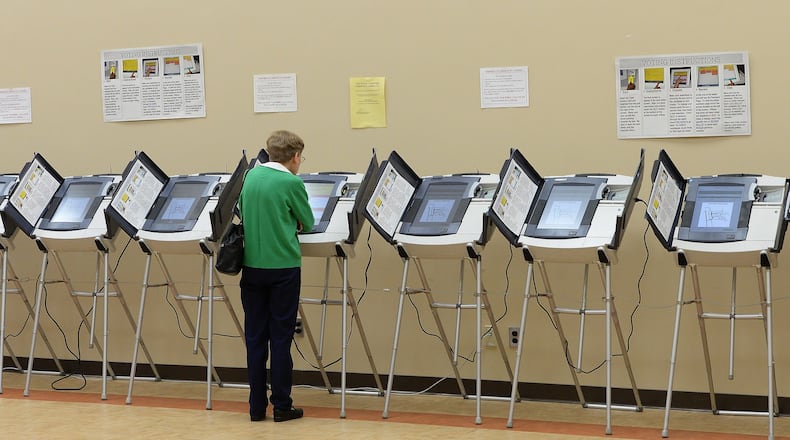As Georgia is preparing for deep budget cuts, the state government is paying $432,000 a year to store 30,000 voting machines that will never be used again.
An attorney for the secretary of state’s office now says it will likely go to court to try to destroy the obsolete voting machines, which are locked in a warehouse because of a lawsuit over election security.
The 18-year-old touchscreens, called direct-recording electronic voting machines, were replaced this year by a voting system that uses new touchscreens and also prints out paper ballots.
“Continuing to preserve the DREs at a significant cost to Georgia taxpayers in times of national crisis for state budgets across the country is wasteful and unnecessary,” according to a May 9 letter from Bryan Tyson, an attorney for the state, to plaintiffs in the lawsuit.
Negotiations to dispose of the outdated voting equipment have stalled in federal court.
The Georgia voters behind the lawsuit want to preserve some of the old voting machines for inspection, allowing them to find out whether the machines were infected by viruses or malware, which they allege could have spread to the state's replacement voting system.
The secretary of state’s office has said the new voting system is secure and independent from its previous machinery.
Some of the plaintiffs offered a proposal to destroy two-thirds of the voting machines, but the two sides have not agreed on which ones to save or dispose.
“We’ve tried to work with them,” said David Cross, an attorney for a group of plaintiffs suing the state. “If we could at least do an analysis of a reliable statistical sample, we could see if the old system was compromised.”
All state agencies, including the secretary of state's office, are planning for 14% budget cuts in the upcoming fiscal year — more than $3.5 billion.
The secretary of state’s office is preparing to slice $3.2 million from its $24 million budget through a hiring freeze, licensing board changes and leaving some positions unfilled, Deputy Secretary of State Jordan Fuchs said.
“There are so many ways we could spend money outside storage costs,” Fuchs said. “We could use that for fighting real security threats rather than activists' lawsuits.”
About the Author
Keep Reading
The Latest
Featured




